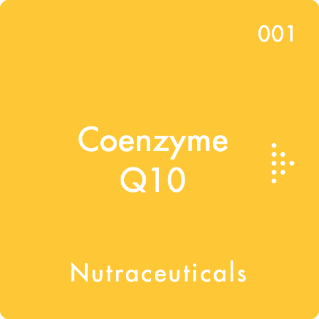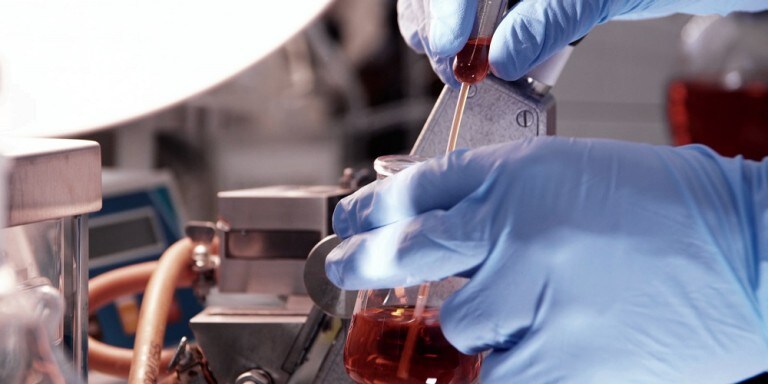
Health Functions
The conversion of energy from carbohydrates and fats to the form of energy used by cells (‘adenosine triposphate’, ATP) requires the presence of coenzyme Q in the inner mitochondrial membrane. Read More

Coenzyme Q10 can be synthesized by the human body and hence cannot be considered a vitamin (1); in addition, it is consumed in the diet.
Coenzyme Q10 is a member of the ‘ubiquinone’ family, referring to the ubiquitous presence of these fat-soluble compounds in living organisms. The ubiquinone found in humans is called ubidecaquinone or coenzyme Q10 (2).
Coenzyme Q10 plays a key role in the energy-generating processes, which take place in the cells in mitochondria as part of the electron transport chain.
Authored by Dr Peter Engel in 2010, reviewed and revised by Dr. D. Raederstorff on 12.04.2017

The conversion of energy from carbohydrates and fats to the form of energy used by cells (‘adenosine triposphate’, ATP) requires the presence of coenzyme Q in the inner mitochondrial membrane. Read More

Oxidative damage of cell structures by free radicals is thought to play an important role in the functional declines that accompany aging (5). Read More
Things to know about Coenzyme Q10
Coenzyme Q10 supplementation has resulted in clinical improvement in some patients with various types of genetic mitochondrial disorders (‘mitochondrial encephalomyopathies’), inherited abnormalities in the function of mitochondrial energy generation (12). Read More
There are currently no specific dietary intake recommendations for coenzyme Q10 from health agencies Read More
The average daily intake of CoQ10 from food is estimated to be around 10 mg in European countries (57, 58). Read More
No coenzyme Q10 deficiency symptoms have been reported in the general population. Read More